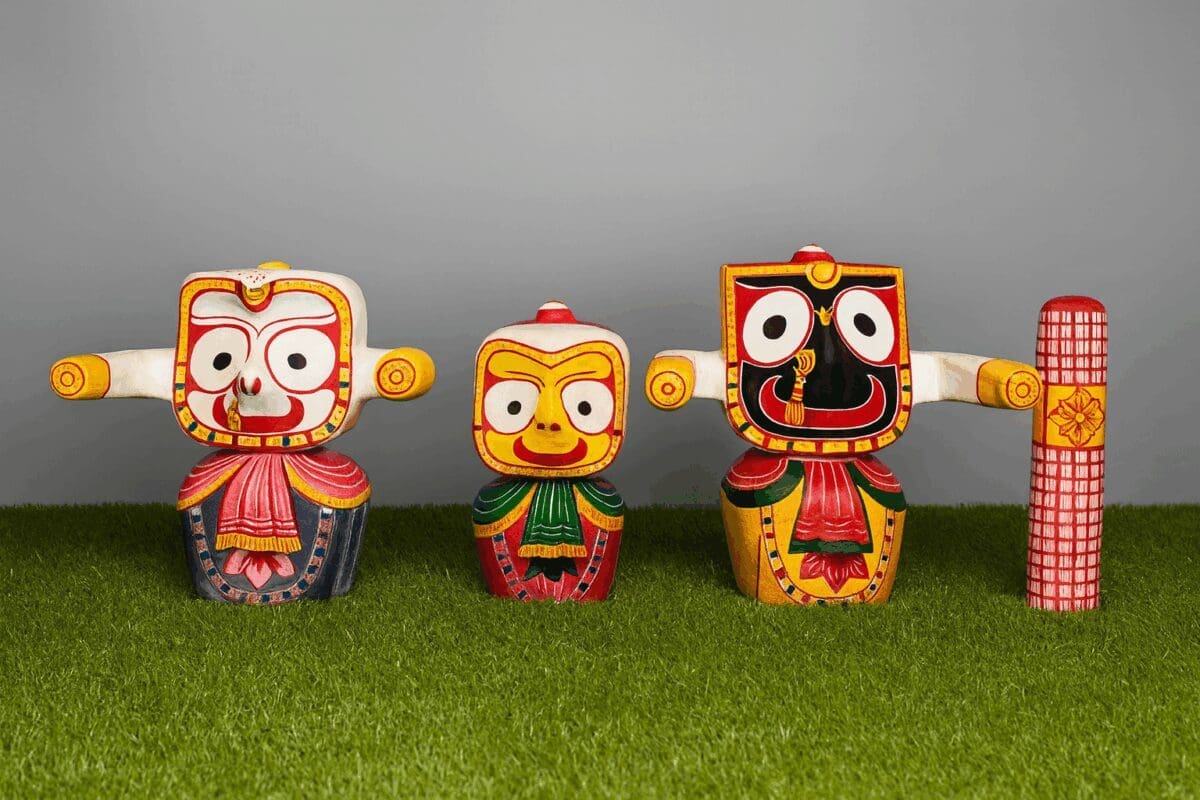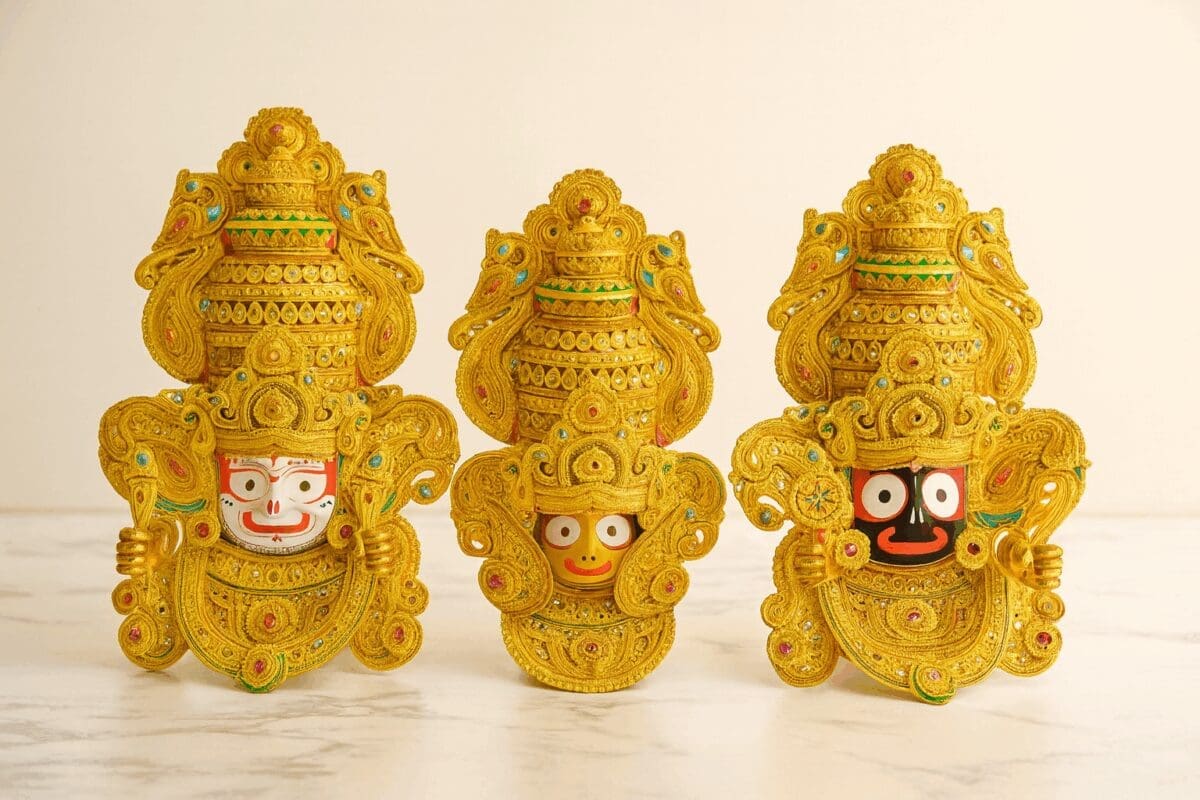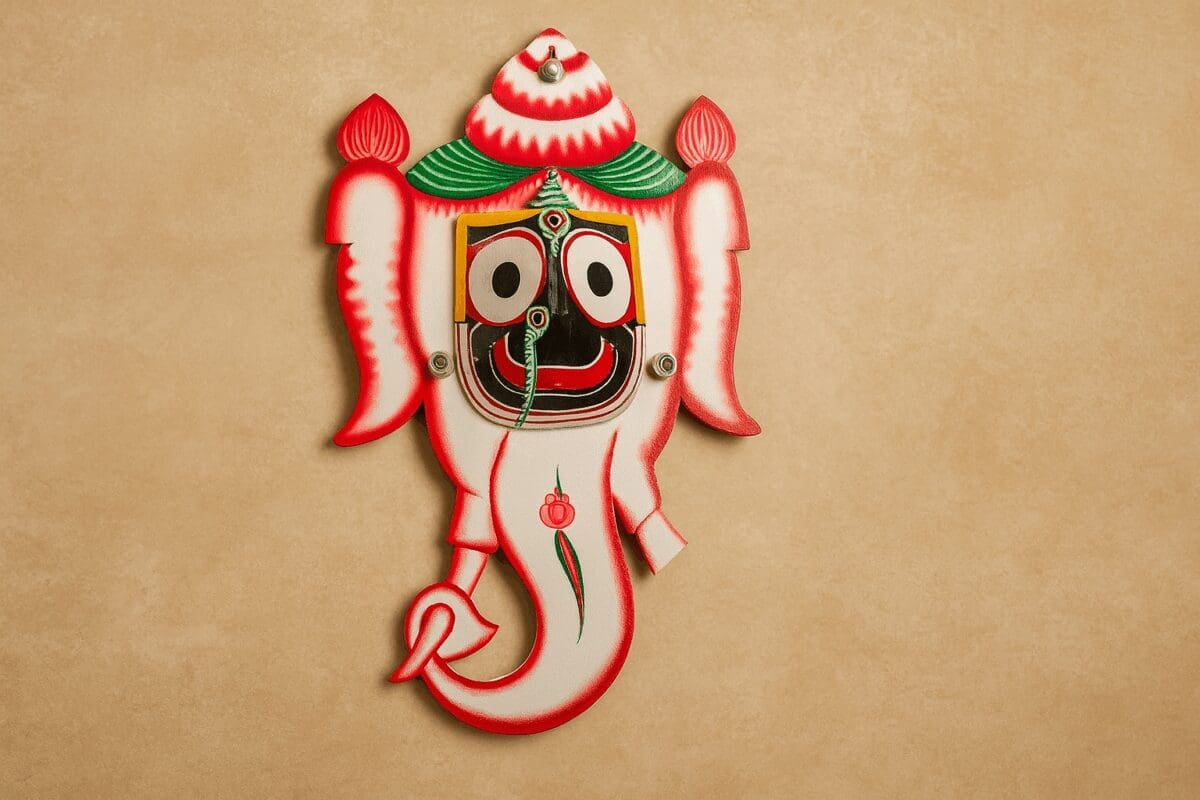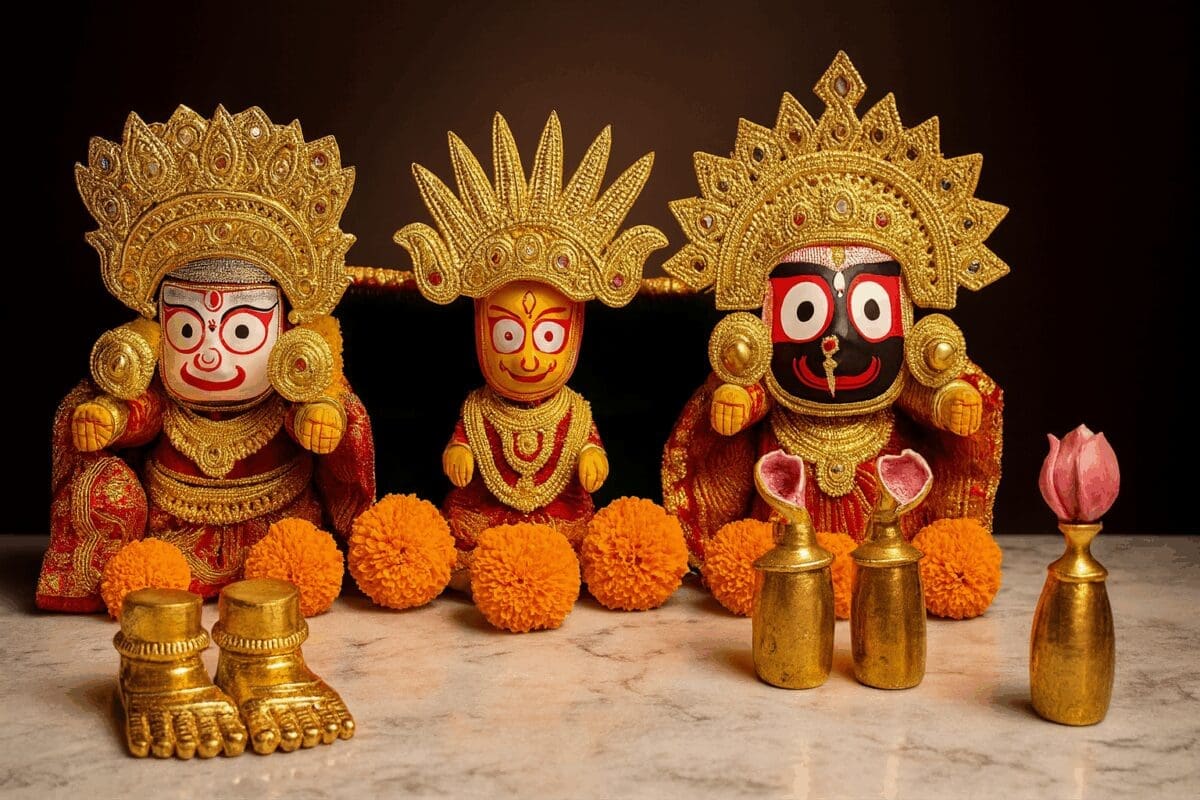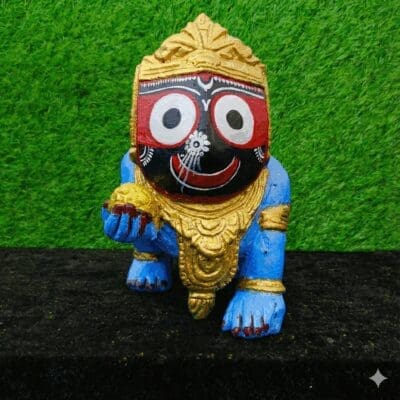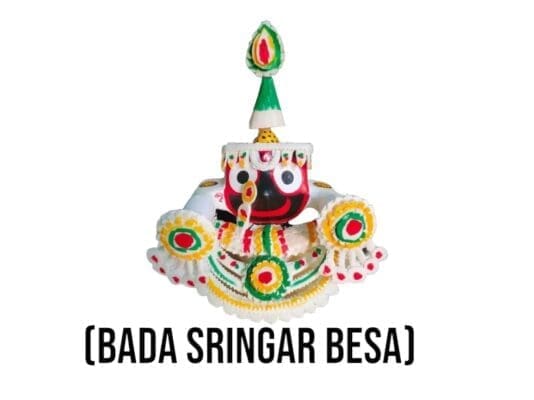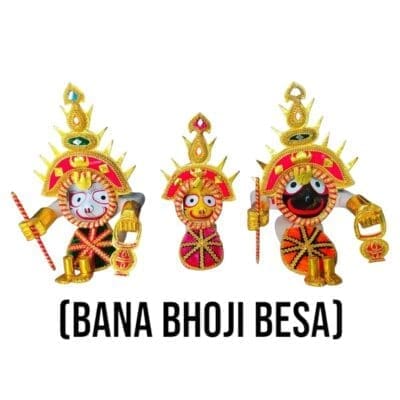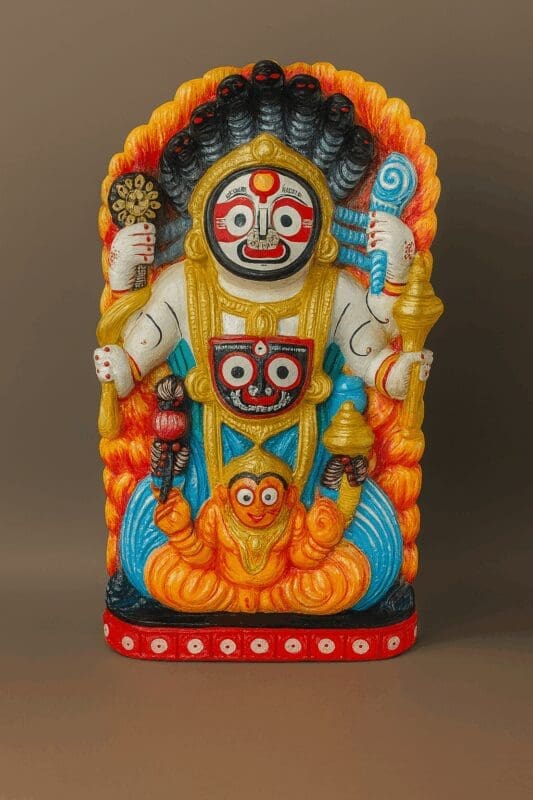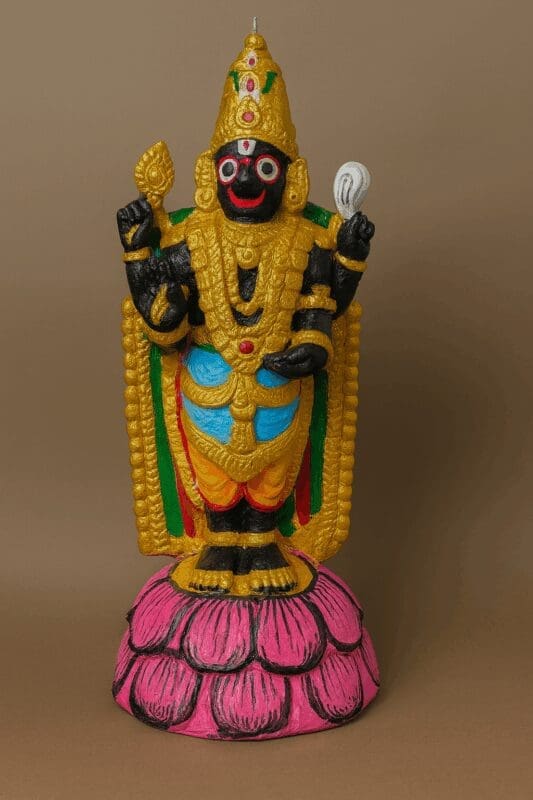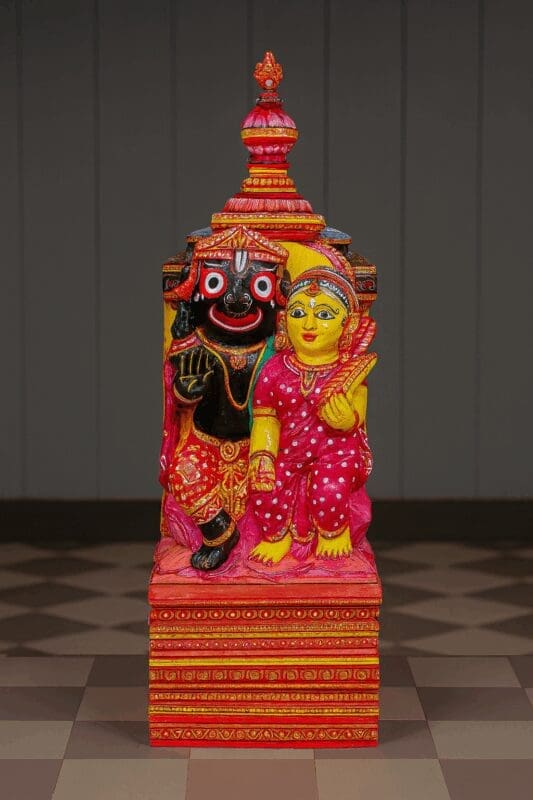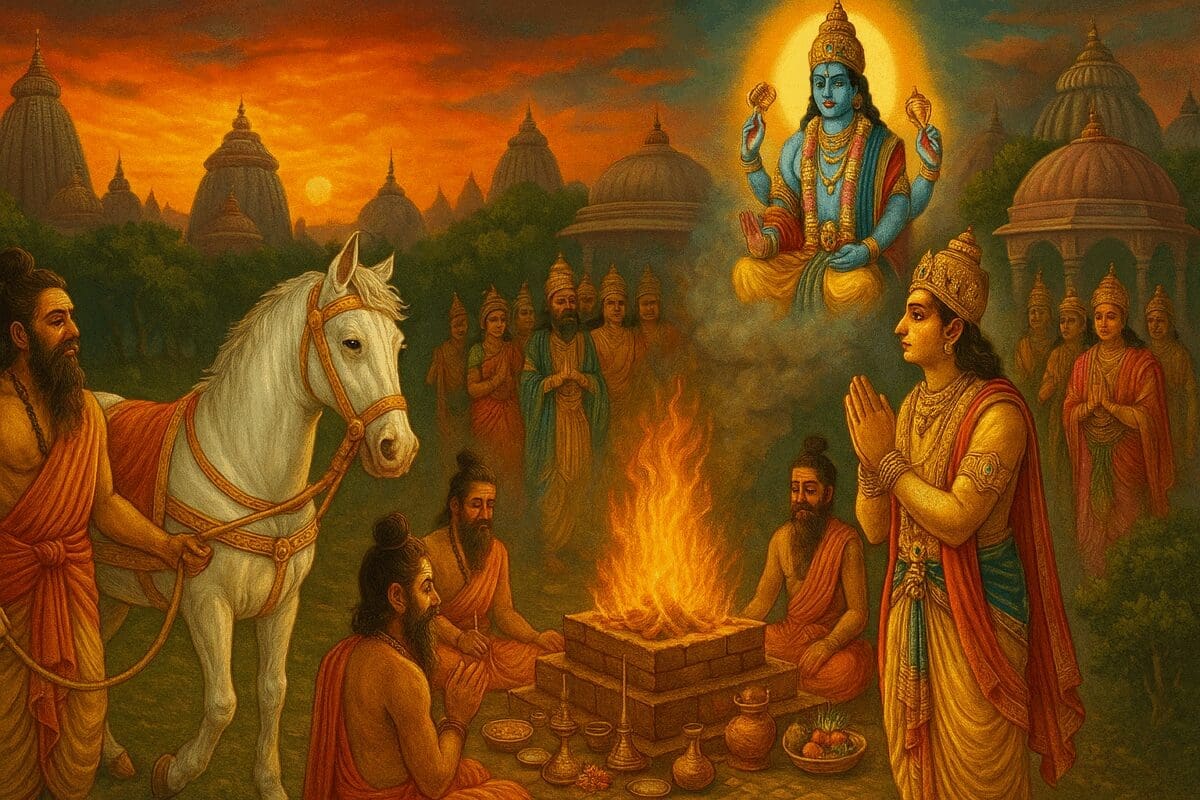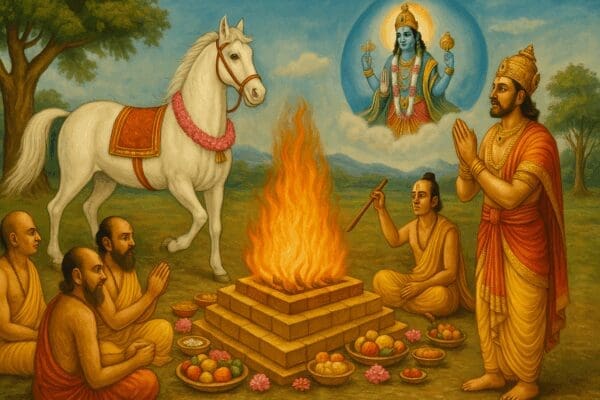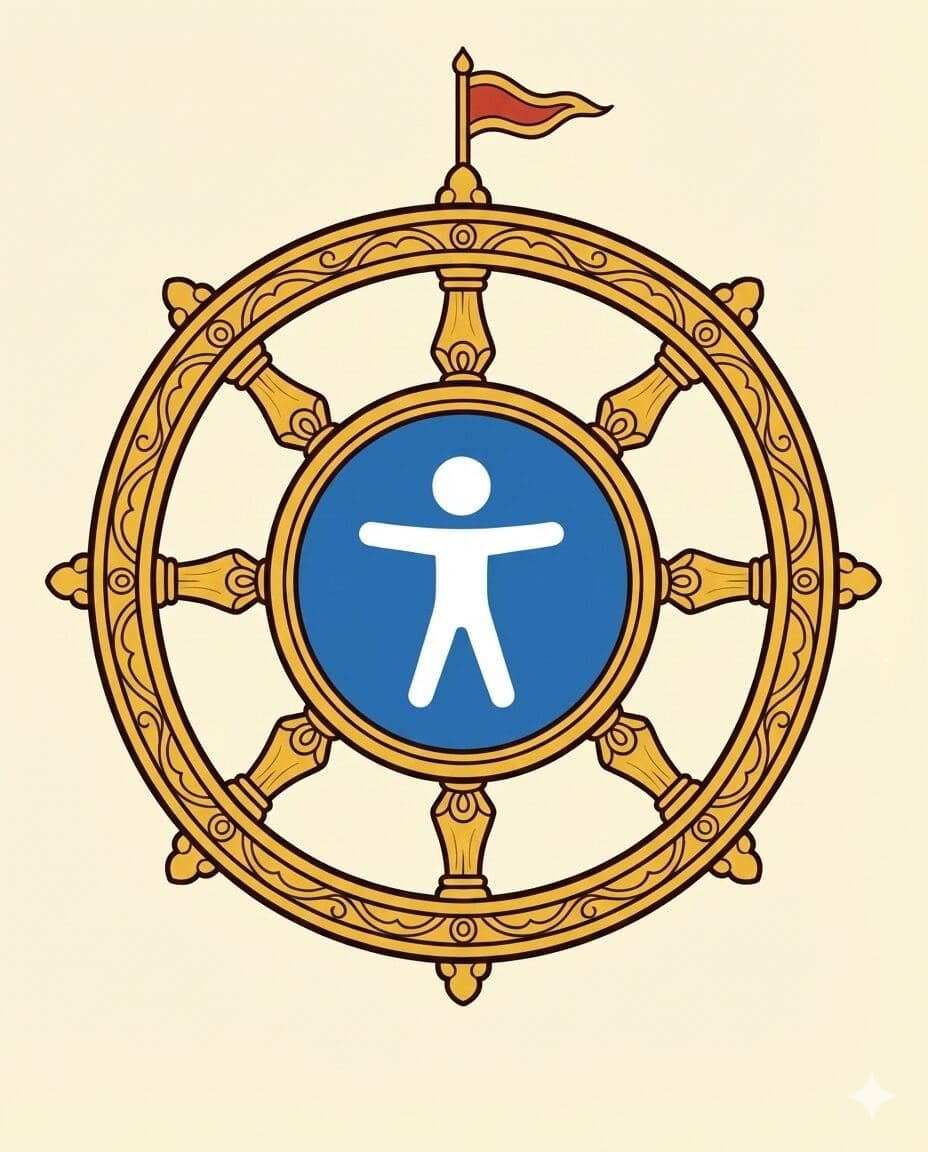Shri Jagannath purana
The Aswamedha: Cosmic Sacrifice and Divine Vision (Ch. 17)
The Aswamedha: Cosmic Sacrifice and Divine Vision (Ch. 17)
Chapter 17 of “Sri Jagannath Puran” transports us to the heart of a grand Vedic ritual, the Aswamedha Yajna, performed by King Indradyumna to appease Lord Vishnu and pave the way for the establishment of the Jagannatha Temple. As a historian fascinated by the interplay of ritual and belief in ancient societies, this chapter offers a captivating glimpse into the elaborate ceremonies, mystical experiences, and spiritual significance associated with this ancient sacrifice.
The Aswamedha Yajna: A Royal Ritual
The chapter describes in detail the elaborate preparations and execution of the Aswamedha Yajna, a horse sacrifice considered one of the most prestigious rituals in Vedic tradition. The sacrifice involved the release of a consecrated horse that would roam freely for a year, followed by its ceremonial sacrifice and a series of elaborate rituals.
Historically, the Aswamedha Yajna was performed by powerful kings to assert their authority, ensure prosperity, and seek divine blessings. The “Sri Jagannath Puran” incorporates this Vedic tradition into the Jagannatha narrative, highlighting the continuity and evolution of Hindu religious practices. The Aswamedha Yajna: A Royal Ritual
Mystical Dimensions: Divine Presence and Cosmic Significance
The chapter imbues the Aswamedha Yajna with mystical significance, suggesting that the ritual serves as a conduit for divine communication and blessings. The text describes the presence of various deities during the sacrifice, witnessing and participating in the sacred ceremony.
The yajna is also portrayed as a microcosm of the cosmos, with its intricate rituals and symbolic offerings representing the interconnectedness of all creation. The sacrifice of the horse symbolizes the surrender of ego and the offering of one’s self to the divine. Mystical Dimensions: Divine Presence and Cosmic Significance
Indradyumna’s Vision: A Dream of Divine Union
The culmination of the Aswamedha Yajna is marked by a dream vision experienced by King Indradyumna. In this dream, he beholds Lord Vishnu and Goddess Lakshmi, who assure him of their blessings and the imminent fulfillment of his quest.
This dream vision reinforces the importance of dreams as a medium of divine communication in ancient Indian spirituality. It also highlights the transformative power of the yajna, suggesting that it purifies the king and prepares him for the darshan (vision) of Lord Jagannatha.
Indradyumna’s Vision: A Dream of Divine Union
Connecting with the Present: The Enduring Power of Ritual
While the Aswamedha Yajna is no longer practiced in its original form, the chapter’s exploration of ritual and sacrifice continues to resonate with spiritual seekers today. It reminds us of the power of ritual practices to connect us with the divine, purify the mind, and foster a sense of sacredness.
For the modern reader, this chapter offers a glimpse into the rich tapestry of ancient Indian spirituality. It encourages us to appreciate the symbolism and significance of rituals, recognizing their potential to deepen our spiritual understanding and connect us with the divine.
Connecting with the Present: The Enduring Power of Ritual
https://justkalinga.com/wp-admin/post.php?post=15690&action=edit&classic-editor


